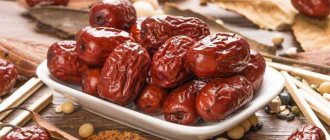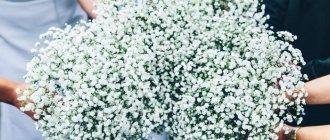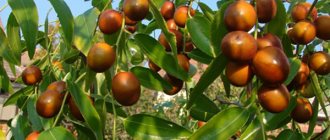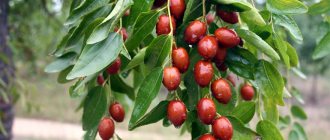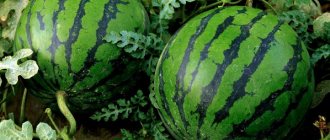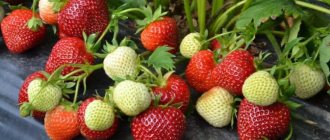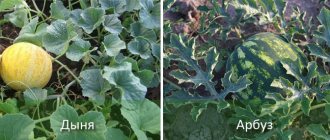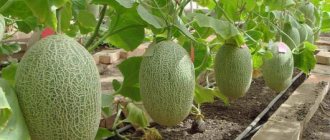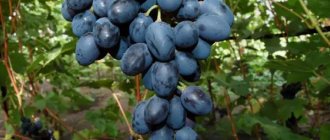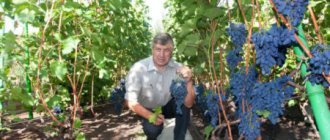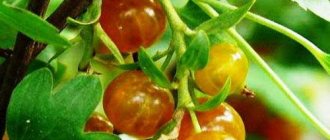Today it has become fashionable to have exotic and unusual crops in your garden. One of such crops among our compatriots was unabi, the beneficial properties of which help to cope with many diseases. The plant has an unusual name - unabi or jujube. It is also known under the names jujube, Chinese date, jilon, jida, choiloni anap, anab.
The beneficial properties inherent in jujube were known more than four thousand years ago in Northern China. Jujube is cultivated there to this day. Nowadays, the plant is well known to residents of Afghanistan, Pakistan, India, Japan, Australia, and the USA. It is grown both in Russia and Ukraine. The results of many years of research prove the possibility of plant adaptation to our climatic conditions.
Unabi is a low tree or bush up to 5 m high. The plant has an attractive decorative appearance at any time of the year, but jujube is especially beautiful during the growing season. Growing is not only about obtaining aesthetic pleasure, but also about harvesting. Jujube fruits are small drupes with glossy skin and fleshy, sweet pulp that tastes a little like dates. Typically, unabi fruits ripen in September-October. During the ripening period, the plant resembles a New Year tree: a tree decorated with bright jujube fruits looks so beautiful.
Unabi is a rather unpretentious plant, and the entire success of cultivation depends on what place you choose for the plant. He is most comfortable in warm, wind-protected areas. In addition, the growth and development of the plant depends on the amount of light entering the area. If there is not enough of it, the yield will suffer significantly. Unabi is not afraid of drought and heat, and loamy soils are most suitable for him. It is very convenient that the plant is not damaged by pests, and in winter it can withstand frosts of up to 25 degrees.
Unabi (jujube) jam with cinnamon
jujube (dense fruit), sugar, citric acid, cinnamon, water,
Pour boiling water over the fruits in the jar and close the lid. After 15 minutes, drain the water and add citric acid. Pour boiling syrup over, roll up and cover.
No. 2 Jujube compote (Zavisza)
Pour boiling water over the fruits in the jar and close the lid. After 15 minutes, pour the water into the pan and bring to a boil again. Add 13 or 14 cups of sugar to the jar. Pour boiling water, roll up and cover. Comment: The compote has a very pleasant taste, slightly reminiscent of quince compote. The fruit in the compote has a mediocre taste. No. 3 Compote A liter jar of fresh fruits is filled with hot syrup of the following composition: water - 2 cups, sugar - 0.5 cups, citric acid - 10 g. Pasteurize for 12-15 minutes. The product has a pleasant, refreshing taste and can be used for medicinal purposes, since the content of vitamin C increases by 65 percent compared to fresh fruits!
What is unabi
The exotic unabi shrub is widespread in the world, growing almost throughout Asia, southern Europe, Transcaucasia, Japan, the USA, Latin America, Africa and Australia. The real record holder for growing jujube is China. Here, about 200,000 hectares of land are allocated for its planting.
Up to 30 kg of berries are harvested from one unabi bush
The unabi bush blooms in June with small greenish inflorescences, and in October it pleases with berries, which are small fleshy fruits covered with a dense yellow or red-brown peel. Their loose, slightly greenish flesh tastes like sweet dried apples.
From one adult unabi bush you can collect up to 30 kg of berries.
Thanks to its pleasant taste and a huge number of beneficial properties, unabi has found application in cooking, folk and scientific medicine.
Attention! The most valuable are the berries of shrubs growing on soils depleted of humus and in the mountains. The concentration of bioactive substances in such fruits is much higher than in fruits grown in gardens.
Unabi is used in both cooking and medicine
In countries where jujube traditionally grows, its fruits are pickled, dried, dried and frozen, as well as stewed or eaten fresh:
- unabi is an essential component of Indian seasoning - chutney;
- in China it is used as a filling for pies, and is also added to rice or sorghum dishes;
- in Central Asia, it is added when baking bread, after drying and crushing it;
- In Korea, drinks are made from it, and in Southeast Asia they are eaten with salt.
In addition to the tasty berries, jujube bushes use seeds for preparing medicinal infusions for headaches and dizziness, roots for coloring and tanning leather, and young leaves, which in Indonesia are used for food and in stews.
Unabi berries ripen in October
Contraindications and side effects
Since unabi has the property of lowering blood pressure, it is contraindicated for hypotension (low blood pressure). Therefore, you should not get carried away with them. 5-6 pieces per day will be enough to strengthen the overall tone.
Consumption in large quantities by pregnant women can lead to increased uterine tone. Which is fraught with miscarriage.
Since fruits take a long time to digest, if you have problems with the digestive tract, it is better to peel them and not eat them in large quantities. Better cook compote.
Sedative properties reduce reaction speed. Therefore, if you plan to drive in the evening, it is better to avoid fruits.
Cooking steps
Prepare syrup. To do this, heat water with sugar and citric acid to a boil, cook over low heat, stirring until all the sugar has dissolved, remove from heat. Pour jujube berries into hot syrup and leave for 12 hours (overnight).
Then put on medium heat and cook for 25-30 minutes, stirring occasionally. It is advisable to remove the foam from the jam.
Place the hot jujube jam into sterilized jars, screw on the boiled lids, cool and store in a cool place.
Bon appetit, make your loved ones happy!
Jujube, also known as unabi or Chinese date, is an exotic southern plant. Jujube is remarkable because everything in it is useful for humans - from roots to leaves. It ripens in September, its berries are firm, with dense pulp and seeds. Bones are also useful! You can read about the amazing healing properties of jujube on the Internet, but the important thing is that jujube retains vitamins and nutrients even when boiled. I collected some jujube and made jam for my mother and mother-in-law as it is good for those with high blood pressure. Jujube is not a juicy berry; for this jam recipe, you first need to prepare the syrup. The berries in the syrup remain whole and do not become overcooked. The taste of the jam or jujube itself cannot be compared with anything, perhaps very roughly, it resembles dried apples and dates.
To make jujube jam you will need:
1.5 kg jujube;
1 kg sugar;
600 ml water;
20 g citric acid.
From the specified amount of ingredients I got about 2 liters of jam.
Prepare syrup. To do this, heat water with sugar and citric acid to a boil, cook over low heat, stirring until all the sugar has dissolved, remove from heat. Pour jujube berries into hot syrup and leave overnight for 12 hours).
Then put on medium heat and cook for 25-30 minutes, stirring occasionally. It is advisable to remove the foam from the jam.
Place the hot jujube jam into sterilized jars, screw on the boiled lids, cool and store in a cool place.
Botanical characteristics, description
Jojoba, translated as Ziziphus jujuba, there are other names for this plant, including real jujube, jujube, unabi, Chinese date. It is a deciduous shrub or tree with thorns; its height can reach up to 10 meters. The leaves are ovoid, leathery, and their edges are serrated.
The flowers are small, white or green, collected in small bunches. The fruits are in the form of drupes, which can be round or oval in shape, their pulp is quite sweet and nutritious, and they ripen in August. The plant blooms during the first two months.
Distribution of jujube
In our country, this representative of the flora grows in the Caucasus, and can also be found in the garden plots and summer cottages of amateur gardeners.
Part of the Chinese date used
Jojoba fruits and leaves are used, medicinal drugs are prepared from them, since these parts of the plant contain many useful chemical compounds, for example, tannins, resins, flavonoids, coumarins, ascorbic acid, sugars, carotene, organic acids, pectins, essential and fatty oil. In addition, there is potassium and phosphorus, as well as anesthetic substances, mainly found in the leaves.
Collection and procurement of raw materials
As for harvesting fruits, they are collected at the moment when they begin to lose their green color. It is customary to pick the leaves at the time when the jojoba bears fruit. They are laid out on a spacious tray, which is placed in a ventilated place, and the raw materials must be turned over every day so that mold does not multiply in it.
Next, when the leaves are completely dry, they are placed in bags made of natural fabric, which are also recommended to be stored in a ventilated and dry room; after a couple of years, the raw material becomes unsuitable for further use, as it loses its medicinal properties.
Use of jojoba, beneficial properties
Traditional healers use this plant to prepare their medicinal potions, which are often used to treat certain ailments. Decoctions and infusions have an expectorant effect, they have a hypotensive effect on the body, regulate and normalize heart rhythm.
Jojoba fruits have a hemostatic and blood purifying effect, and can also lower blood pressure. They have a diuretic, mild laxative effect, as well as analgesic, wound healing, sedative, expectorant and antimicrobial. In addition, drugs prepared from these berries reduce blood cholesterol levels.
The fruits are eaten both fresh and dried. It is worth knowing that during pregnancy, as well as with low blood pressure, you cannot eat these berries, as well as if you have an individual intolerance.
Infusion recipe
To prepare an infusion from jojoba, you will need a tablespoon of the leaves of this representative of the flora, and they must be crushed, after which you should place the finished raw material in a glass jar and pour 300 milliliters of boiling water into it. Next, cover the container with a lid and infuse the drug.
Then, after about 30 minutes, you need to strain the infusion to rid it of the leaves; for this you can use gauze, but it is better to fold it in two layers so that the cake cannot seep into the solution.
The finished infusion can be taken for bronchitis, which is accompanied by a severe cough, and this drug will also have a positive effect on the body in case of hypertension, and it is recommended to drink 50 milliliters up to four times a day.
The prepared infusion should only be stored in the refrigerator, since at room temperature the drug will quickly turn sour, making it unsuitable for further use.
Decoction recipe
You can prepare a medicinal decoction from the Chinese date, which can be used if you have a history of hypertension, since this drug will have a hypotensive effect on the body; of course, it is better to first consult a cardiologist.
So, to prepare a decoction, take about 20 grams of dried jojoba fruits, after which you can lightly chop them and pour 200 milliliters of boiling water. After which the container with the drug must be placed in a water bath, where it will simmer for ten minutes.
Then remove the container from low heat and allow it to cool before starting to filter the broth. For this purpose, you can use a strainer or a double layer of gauze, through which the liquid should be poured. Take it 100 milliliters up to six times a day.
The finished broth must be stored at a cool temperature; this will not allow moldy fungi and any other pathogenic microorganisms to multiply. The shelf life of the drug, subject to appropriate conditions, should not exceed five days.
Conclusion
Jojoba grows mainly in areas with a mild and warm climate, and its leaves and fruits can be purchased at the pharmacy for the preparation of medicinal potions, but before proceeding with this, you must enlist the support of a doctor.
Any treatment must be approved by a doctor, who must first assess the patient’s condition based on objective data, carry out the necessary diagnostic measures, both laboratory and instrumental, and only after that the doctor will prescribe adequate complex therapy, it is possible that they will include some medicinal herbs.
Jujube is a fruit of a bush tree that resembles a date in appearance. It is also called “Chinese date” or “jujube”. The name of the fruit has an ancient Greek history of origin. In Hellas, jujube was the name given to every fruit that could be cooked and eaten.
Nutritional value
One hundred grams of the product contains only 80 calories. But at the same time it satisfies the feeling of hunger very well. Therefore, it can be recommended to those who decide to lose weight. But you still shouldn’t abuse them.
It is recommended to eat no more than 200 g of fruit per day. The fruits contain absolutely no fat or sodium. But the composition is marked by the content of carbohydrates and dietary fiber. Contains proteins and a certain amount of minerals.
If a toothache occurs, then to eliminate it you need to chew unabi. At the same time, it exhibits a certain anesthetic effect. It will be useful for women when breastfeeding, as it stimulates lactation.
Composition and calorie content of jujube
Unabi cannot be called a weight loss product.
The calorie content of jujube per 100 g is 79 kcal, of which:
- Proteins - 1.2 g;
- Fats - 0.2 g;
- Carbohydrates - 20.23 g;
- Ash - 0.51 g;
- Water - 77.86 g.
The benefits of jujube are provided by the nutrients it contains.
Vitamins per 100 g:
- Vitamin B3 (PP) - 0.9 mg;
- Vitamin B6 (pyridoxine) - 0.08 mg;
- Vitamin B2 (riboflavin) - 0.04 mg;
- Vitamin B1 (thiamine) - 0.02 mg;
- Vitamin C (ascorbic acid) - 69 mg.
Micro- and macroelements per 100 g:
- Zinc - 0.05 mg;
- Copper - 0.07 mcg;
- Manganese - 0.08 mg;
- Iron - 0.48 mg;
- Phosphorus - 23 mg;
- Sodium - 3 mg;
- Magnesium - 10 mg;
- Calcium - 21 mg;
- Potassium - 250 mg.
Potassium is a macroelement that is responsible for organic processes, namely water-salt balance and heart function.
Thanks to potassium, muscle cramps are prevented, cells are uninterruptedly saturated with oxygen, and protein-carbohydrate metabolism is regulated. Unabi contains many amino acids that are involved in the functioning of the immune system and preserve the structure of DNA. The amino acid complex contains: arginine, lysine, glutamic acid, cysteine, phenylalanine, tryptophan, aspartic acid, glycine and 12 more compounds. Without them, the body cannot produce new proteins, it is impossible to model one’s own body and form a beautiful figure.
Jujube contains a large amount of vegetable fats and fatty acids: saturated, unsaturated, polyunsaturated and monounsaturated. Among these compounds, particularly valuable polyunsaturated fats are Omega-3 and Omega-6. They are responsible for regenerative properties - the synthesis of elastin and collagen, thanks to which the integrity of the skin is restored, the hair becomes smooth and shiny, the elasticity of the upper layer of the dermis increases - the tone in the micromuscles under the skin surface increases. With a lack of polyunsaturated fats, age-related changes progress.
Useful and healing properties
This plant has long been used in traditional medicine of the East, not only the berries, but also the seeds, bark, leaves, and roots.
Now there are dozens of varieties of cultivated unabi, differing in appearance, taste and properties. However, they all contain a huge amount of vitamins and microelements, and other substances vital for the body.
Thanks to this composition, the plant is often compared for its healing qualities with eleutherococcus and ginseng. At the same time, jujubes grown on poor, arid mountain slopes contain much more useful components than plants grown on fertile soils.
What health benefits does unabi bring?
Regular consumption of fruits rejuvenates the cells of the whole body, eliminates toxins, waste, radionuclides, and heavy metals. The liver begins to work better, bile secretion is normalized, and excess fluid is removed from the body.
Jujube strengthens the nervous system, has a calming effect and in some cases, for example, with headaches, toothaches, cramps, can serve as a pain reliever. The greens of the plant can also help with dental diseases and stomatitis, but be careful, the special composition of the leaves will affect the perception of taste. After eating them, you may stop feeling sweetness and bitterness for a while, while sour and salty foods will feel great.
The fruits can be used as a tonic and diuretic, they are useful for edema, after serious illnesses and operations they will give vigor and strength, and the vitamin C they contain will strengthen the body's resistance to adverse external influences.
Berries are rich in beta-carotene (provitamin A), which is necessary for those who suffer from eye diseases and work a lot at the computer.
It is not for nothing that B vitamins are called vitamins of beauty and health. They are found in large quantities in Chinese dates and help overcome stress and normalize sleep.
The healing properties of unabi are widely used in the treatment of nephritis, cystitis, and urolithiasis. A decoction of the fruit is used in the treatment of respiratory diseases: whooping cough, pharyngitis, laryngitis, tracheitis, bronchitis, etc.
Thanks to its fiber, jujube stimulates the gastrointestinal tract, cleanses the intestines and helps fight constipation.
A decoction of the bark and leaves of the plant, used in the treatment of diseases and skin injuries, has excellent antiseptic, healing and bactericidal properties.
The Chinese date is able to remove bad cholesterol, improve blood counts, cleanse and strengthen the walls of blood vessels and prevent the formation of cholesterol plaques.
Jujube fruits can be eaten fresh, boiled, dried, dried, canned, and can be used to make preserves, compotes, and jams. The berries of this amazing plant have the same valuable properties as sea buckthorn - they do not lose their medicinal qualities after heat treatment.
A decoction of unabi is no less useful than fresh fruits. It is used to normalize blood pressure, blood circulation, improve heart function, help eliminate diarrhea, and kill pathogenic microbes in the intestines.
Berries added to regular tea will help you calm down after a hard day and fall asleep easily, and regular consumption of this drink with honey will quickly and reliably relieve you of insomnia.
The seeds of the fruit are also highly valued in medicine. Their infusion, if taken regularly 3-4 times a day, will relieve dizziness, tachycardia, and hysterical attacks. Two tablespoons of a decoction of the plant bark, drunk before meals, will protect against digestive upset. 20 dried fruits, if eaten three times a day for three months, will significantly improve the well-being of hypertensive patients.
A decoction of the roots is actively used in cosmetology as a wonderful remedy for strengthening hair, healing the scalp and preventing baldness.
Inflammation, pimples, acne and irritation can be “defeated” with the help of plant leaves boiled in olive oil. This ointment will heal the skin in a few days, make it soft, tender, elastic, even out the color and add radiance.
Jujube fruits are also used to prepare dietary supplements.
Unabi in folk medicine
Herbal decoction:
Boil 10-20 unabi fruits per 500 ml of boiling water for 20 minutes, leave for 1 hour, filter.
Take 100 ml 3-4 times a day for anemia, smallpox, diarrhea, weakness, dizziness and dry cough, for diseases caused by a lack of vitamin B in the body, as a tonic and reduces cholesterol levels in the blood.
A decoction of the roots is used to stimulate hair growth and strengthen.
Preparation of the infusion:
1 tbsp. l. crushed unabi leaves in 300 ml of boiling water, infuse for 1 hour, filter.
Take 50 ml 3-4 times a day for hypertension, pulmonary diseases with cough.
Wash your hair with this infusion to strengthen your hair and treat dandruff.
Tincture:
Boil 100 g of crushed unabi seeds in 500 ml of water for 10 minutes, add 200 ml of 96% alcohol, leave for 8 hours, filter.
Take 1 tbsp. l. 4 times a day for neurasthenia, hysteria, dizziness, tachycardia, insomnia.
Ointment:
fresh unabi leaves are mixed with olive oil (1:5), heated to a temperature of +90°C, left for 10 days, filtered.
Used for tumors, abscesses, ulcers. Fresh or dried unabi fruits are prescribed 20 pieces 3 times a day after meals (course of treatment - 3 months) for hypertension.
Popular varieties of Chinese date unabi
There are many varieties of jujube, about 50, but the most common are 3 main ones:
- Unabi Chinese (ordinary), the appearance of which is described above;
- A lotus tree that came to us from the Mediterranean subtropics has yellow fruits whose weight reaches 40 g;
- Unabi Moorish with round reddish fruits.
There is a more detailed division of the Chinese Unabi date into varieties within the main ones, which differ in the time of fruit ripening, their size, etc.
Of these, the following are relevant for the middle zone:
- Chinese 60 – small, up to 3 m, with fruits about 10 cm in size, harvesting in September.
- Sinit is a medium-tall plant with small fruits (about 6 cm).
- Date has fruits of about 4 cm, which fall off quickly when ripe, so the harvest should be harvested immediately.
- Mori jer - with large, up to 25 cm fruits, frost-resistant.
- Khurman - covered with thorns, fruiting lasts up to 3 weeks, has sweet fruits.
- Candy - quite low, has a spherical crown, bears fruit in the fall. The fruits are sweet and red.
- Southerner has pear-shaped fruits, which are used primarily for preservation.
- Shirvan is a mid-season variety, the fruits are sour.
- Tavrika - fruit ripening occurs in November.
- The firstborn produces a high yield of sweet and sour fruits, barrel-shaped, with a sweet and sour taste.
- Ya-Zao is an unpretentious medium-ripening variety.
- Absheronskiy - is frost-resistant, has a sweetish fruit with a slight sourness.
- Kara-Dag is a late-ripening variety
- Koktebel - large fruits also ripen late, and the yield from one tree can be about 80 kg.
Main healing properties and indications for use of unabi
Jujube can relieve a huge number of different symptoms and diseases. The main ailments that French breastberry successfully treats include:
- kidney diseases
- fleshy and juicy unabi fruits are widely used in urology for the treatment of inflammatory processes, the risk of urolithiasis, etc. They have good antimicrobial, diuretic and tonic properties. Timely and correct removal of fluid from the body allows you to quickly cure inflammation and get rid of the discomfort associated with fluid stagnation in the kidneys. Healing fruits, due to their composition, gently stimulate the urinary system to work correctly, cleanse the kidneys, prevent swelling and help remove unnecessary substances from body tissues; - insomnia, restless sleep
– jujube and its seed extract have excellent sedative properties. The natural combination of components will gently and carefully calm not only the body, but also the mind, and give a healthy, pleasant sleep; - treatment and prevention of colds and other inflammatory diseases
- the high content of antioxidants, vitamins C, A, as well as various acids and organic substances make it possible to take unabi as an effective means to improve immunity; - the presence or risk of anemia
- the fruits of the Chinese date contain iron, zinc, phosphorus and copper, allowing you to restore the correct balance of these trace elements in the blood and the human body. Regular consumption of jujube relieves symptoms of this disease such as muscle weakness, fatigue, indigestion, dizziness, etc. Thanks to the normalization of iron and phosphorus levels, the blood is better saturated with oxygen, which improves the functioning of all internal organs and the well-being of a person in general; - disorders of the digestive system, constipation
- the fruits contain saponins, fibers and triterpenoids, which play an important role in the quality absorption of food and the healthy, proper passage of food through the entire gastrointestinal tract. Regular consumption of jujube prevents painful spasms, excessive gas formation, constipation and other unwanted “symptoms”, normalizing the functioning of the gastrointestinal tract; - treatment and prevention of osteoporosis -
unabi fruits are rich in minerals and trace elements in a highly digestible form, which allows you to naturally restore bone health.
In addition, jujube is useful:
- in stressful situations;
- as a means for weight loss;
- for healthy skin and hair;
- for blood purification;
- as a prevention of tumors and oncological diseases;
- for the treatment of stomatitis;
- as a choleretic agent, etc.
The positive properties of unabi make this fruit, truly, a panacea for most known diseases. But, unlike modern medicines, the Chinese date provides effective help in a natural way - rejuvenating cells, giving the body strength and the necessary microelements for self-healing, which is much more effective and better than many modern medicines.
Benefits and harms
Jujube is a valuable berry that contains a lot of useful nutrients and is a leader in the amount of vitamin C and iodine.
Attention! During storage, the amount of ascorbic acid in jujube fruits increases. Dried berries retain vitamins for 2 years.
Jujube berries are a unique dietary and medicinal product; their properties are almost as good as eleutherococcus and ginseng. Its use has:
Attention! In China, the fruits, seeds, roots and leaves of unabi are used to make dietary supplements.
In addition, the inclusion of unabi in the diet helps improve vision and weight loss, and in lactating women, increases lactation. Eating a few jujube fruits can easily get rid of a hangover.
Due to its anti-inflammatory and analgesic effect, decoctions and infusions of jujube leaves are used in the treatment of diseases of the gums and throat, purulent wounds, burns and dermatitis.
Unabi berries have anti-inflammatory properties
Contraindications to the use of jujube are individual intolerance to the product, the presence of hypotension. It should be used with caution during pregnancy.
How unabi is used in cosmetology
Chinese dates are actively used in cooking. The benefits of jujube are especially great in caring for hair and facial skin.
Benefits for hair
Decoctions of unabi (especially roots, bark and leaves) effectively help fight dandruff, blockage of the sebaceous glands, but above all, hair loss. Decoctions regenerate hair follicles and strengthens hair. Rinsing the roots with a decoction also promotes rapid growth of children's hair.
Benefits for the face
Unabi effectively eliminates acne, abscesses, pimples, irritations and other similar diseases on the skin of the face. The ointment is prepared from freshly picked leaves and vegetable oil (preferably olives) in a ratio of 1:5. The mixture is heated to +90 °C. Then you need to remove it from the heat and leave to infuse (10 days). Store the composition in the refrigerator so that, if necessary, lubricate the problem area on the skin with it.
The use of jujube in folk medicine
The healing properties of unabi have not gone unnoticed. There is even a saying in China that those who eat unabi fruits do not need doctors.
All the “organs” of jujube have found their application.
Jujube has thick gray or black bark and cherry-colored branches. The young bark has no cracks and is smoother. The bark is used for medicinal purposes.
It acts as a tonic, helping to get rid of diarrhea. A decoction is prepared from 10 g of crushed bark. Pour a glass of boiling water over it and place in a water bath (up to 45 minutes). Drink 2 tbsp. l. 30 minutes before meals.
Leaves
Jujube leaves are leathery, elongated-ovate, located on small petioles. They have a hypotensive effect, promote expectoration of sputum (for diseases of the lungs and bronchi), stabilize blood pressure and heart rate (for hypertension). To prepare the infusion, use 2 tablespoons of dry leaves per 300 ml of boiling water. It is necessary to insist for 1 - 2 hours. Drink - three tablespoons three times a day.
A decoction of the leaves can be used to wash out ulcers on the mucous membranes.
Did you know?
Jujube leaves contain an anesthetic.
If you chew a fresh leaf, the anesthetic in it has a temporary paralyzing effect on the taste buds of sweet and bitter. The taste of sour and salty is still felt. Jujube is ovoid and 6 cm long. Unabi berries are eaten fresh and dried; in addition, their beneficial properties do not disappear from heat treatment. It is recommended to take fruits:
- For hypertension
- 20 berries three times a day (consume for three months, then take a break). - For toxicosis and breastfeeding
- take fresh or dried. - For anemia
- berry compote (it is better to use dried jujube). Boil berries (10 pieces per half liter of water) for 20 minutes, leave for one hour, take 100 ml three times a day. - For inflammation of various kinds
- boil 15 overripe berries (per 300 ml of water) and simmer over low heat. The volume of the decoction should be reduced by three times - to 100 ml. Cool, strain. Take the decoction for 15 days (a tablespoon three times a day).
Important!
When consuming jujube berries or taking medications based on it, it is necessary to monitor blood pressure levels to prevent hypotension.
The benefit of jujube seeds is their sedative effect on nerve cells. Preparations from unabi seeds are used in the treatment of depression, dizziness, as well as stress and insomnia. To prepare the product, you should:
- grind the seeds (100 g);
- fill them with half a liter of water;
- boil and simmer for ten minutes;
- add 200 ml of alcohol and leave for eight hours.
Important!
Pregnant women strictly from taking unabi seed products .
Contraindications to the use of unabi
Despite all the benefits, not everyone can use jujube. The following contraindications exist:
- age up to 5 years – children, at least up to this age, should absolutely not be given this fruit;
- pregnant women should avoid it;
- It is advisable for young mothers to limit themselves to only the pulp of the fetus;
- hypertension – Chinese dates lower blood pressure, so people with low blood pressure should be extremely careful with this product;
- in case of diseases of the gastrointestinal tract, the fruits must be peeled - this will facilitate the absorption of the product and eliminate possible damage to the walls of the stomach. If an ulcer occurs, the product should be discarded altogether;
- when losing weight, the fruits should be taken in doses, otherwise the increased blood sugar level, on the contrary, will contribute not to a decrease, but to an increase in body weight.
Despite the high sweetness of the Chinese date, it is possible and even recommended to take it if you have diabetes. In addition to sweetness, these fruits also contain a plant analogue of insulin, so they do not increase, but stabilize blood sugar.
Internal and external use of fruits is possible.
